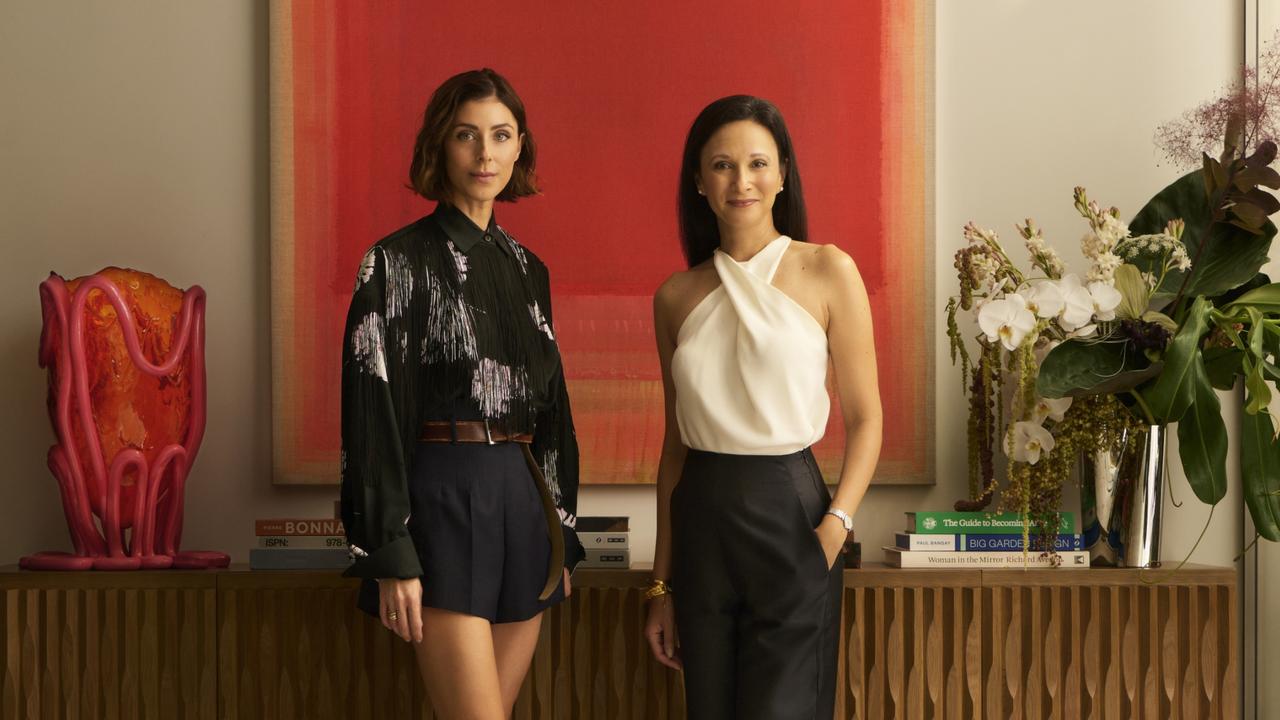How former CSIRO executive James Bradfield created TuShare from other people’s unwanted stuff
DON’T bin it. Pass it on to someone who wants it.

A RUBBISH bin might be a rubbish bin to you or me, but to scientist James Bradfield Moody it is a “$5 piece of plastic connected to a billion dollars worth of infrastructure”.
Hence the great difficulty we have in doing anything other than throwing away unwanted household items, even though they are in perfectly good working order — a situation Moody, a former CSIRO executive and judge on the ABC program The New Inventors, is determined to change by boosting the sharing economy.
“Waste equals opportunity and it’s interesting when you open your eyes how much idle stuff there is,” says Moody.
Which is why he has helped to create TuShare, an online platform that hopes to do to the sharing economy what sharing networks such as GoGet have done for cars and AirBnB have done for accommodation.
“This is part of a broader trend. The sharing economy takes idle assets in the community and uses them to save money and help the environment,” Moody says.
As our consumer values change, the trend of collaborative consumption spreads. Reusing site Freecycle boasts more than seven million members, while Time magazine dubbed collaborative consumption one of 10 ideas that will change the world.
The TuShare site was developed last year and launched in December.
Motorists group NRMA has become a supporter. Users access the sharing network via a smartphone, snap a picture, provide details of the item and wait for requests. Receivers can use an affordable courier service to have items delivered to their door or collect them from a post office.
Items typically available on TuShare include a board game from Condell Park, NSW, an airconditioner from Fraser, ACT, a sanding tool from Rochedale South, Queensland and a women’s skirt (size 8) from South Melbourne. So far, the most popular categories have been: kids, women, home and garden, books and games and electronics. Most users are from NSW (50 per cent) followed by Victoria (19 per cent) and Queensland (15 per cent). “It taps into all our sense of generosity,” says TuShare co-founder and former pay-TV executive Petra Buchanan. “We talk about the generosity gratitude cycle. You give something, they are grateful and then become more generous to others.”
With two boys aged two and four, Moody became aware that 80 per cent of families have stuff they no longer use. “I started to do some investigating into why do things sit around in your house being idle,” he says.
He came up with four main reasons. Objects can be a lifestage item, which becomes less relevant when you mature and change your circumstances. They can be upgradeable objects, such as phones, which are put aside for better quality items or more advanced items as our skills or requirements change.
Books, CDs and DVDs are media that we sometimes read multiple times but more often read once and retain.
Fashion items such as clothes are in a category of their own. “Every wardrobe has a pair of shoes that were bought but tend not to be vital,” Moody says. The reason that these item are not shared around have to do with a lack of sharing infrastructure.
“The biggest barrier is that the alternatives are so attractive, leaving on the shelf or throwing in the bin. If your actual competition is the rubbish bin, it’s a $5 piece of plastic connected to billion dollars worth of infrastructure.”
He cites council trucks and waste plants. “We have built all this waste infrastructure up that makes waste easy. We have replaced this with a second tier — recycling.”
But while recycling is become easier, the reusable infrastructure, such as charity bins, is severely limited. “There’s hardly anything out there — eBay is part of the reuse infrastructure but it turns out the easiest is giving. The positive effect of giving is that the experience is different — people say thank you.”
More: tushare.com


